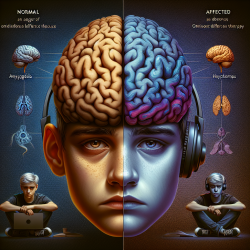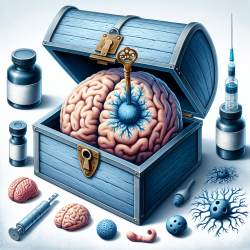The comprehensive study titled "Rehabilitation Needs of People with Cerebral Palsy: a qualitative Study" (Sharifi, Kamali, & Chabok, 2014) provides critical insights into the multifaceted needs of individuals with cerebral palsy (CP). This qualitative research, conducted through in-depth interviews with 17 participants, categorizes the rehabilitation needs into four primary domains: social, emotional, economic, and therapeutic. As practitioners in the field of speech-language pathology, it is imperative to understand these needs to tailor our interventions effectively and advocate for comprehensive care. Here, we discuss how to integrate these findings into practice and encourage further research.
Understanding and Addressing Social Needs
The study identifies social needs as a significant domain, encompassing support and companionship, marriage, social acceptance, access to urban facilities, labor, education, and supportive organizations. Practitioners can leverage this information by:
- Facilitating support groups to provide companionship and emotional support.
- Advocating for accessible urban infrastructure to improve mobility and independence.
- Collaborating with educational institutions to ensure inclusive educational opportunities.
Emotional Needs: The Role of Family and Friends
Emotional needs, as highlighted in the study, include the need for love, value, attention, and friendly communication. Practitioners should:
- Engage families in therapy sessions to foster understanding and emotional support.
- Develop programs that encourage social interaction and friendship-building among peers.
Economic Needs: Employment and Housing
The economic needs domain focuses on housing and employment. To address these needs, practitioners can:
- Work with vocational rehabilitation services to help individuals with CP find suitable employment.
- Advocate for housing policies that provide affordable and accessible living arrangements.
Therapeutic Needs: Comprehensive Medical and Rehabilitation Services
Therapeutic needs include medical care, surgeries, and various forms of rehabilitation such as occupational therapy, physiotherapy, hydrotherapy, and speech therapy. Practitioners should:
- Ensure regular medical check-ups and follow-ups with specialists.
- Integrate multidisciplinary rehabilitation approaches to address the diverse needs of individuals with CP.
Encouraging Further Research
The study by Sharifi et al. underscores the importance of understanding the lived experiences of individuals with CP. As practitioners, we must advocate for and participate in further research to continually refine and improve our approaches. Engaging in collaborative research efforts can help identify emerging needs and innovative solutions.
To read the original research paper, please follow this link: Rehabilitation Needs of People with Cerebral Palsy: a qualitative Study.










